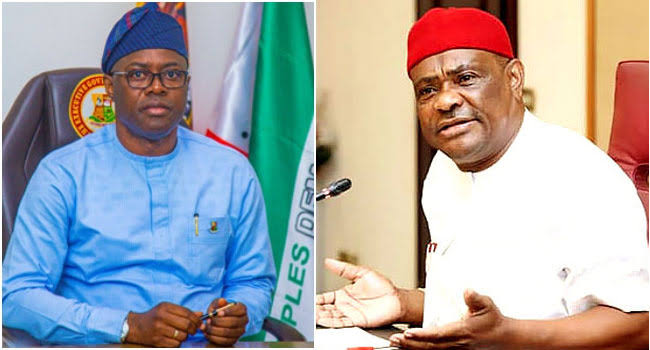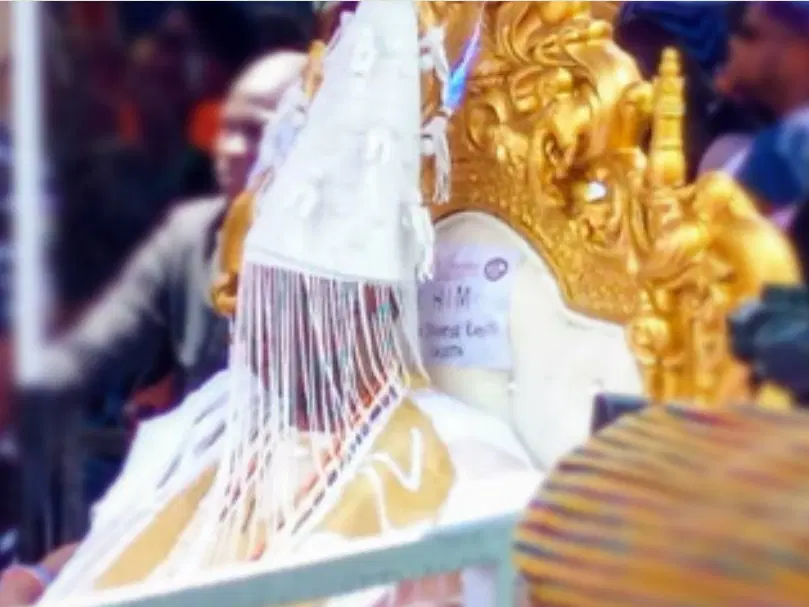The Paris Connection: President Tinubu’s Ties to Billionaire Gilbert Chagoury and the Debate Over Power, Privilege, And Public Funds

Since assuming office, President Bola Ahmed Tinubu has traveled more to France than to any other country in the world. On the surface, these visits may appear harmless — just a head of state taking a break or handling diplomatic engagements. But a closer look reveals a web of relationships, business interests, and billion-dollar deals that paint a more complex and troubling picture.
A Long Love Affair with France
President Tinubu’s trips to France did not begin with his presidency. Long before he moved into Aso Rock, he was a regular visitor to Paris. Back then, it was a private matter — a man choosing where to relax, unwind, or perhaps escape public scrutiny. But things have changed.
Today, Tinubu is no longer a private citizen. He is the President of the Federal Republic of Nigeria. And every flight, every luxury stay, every security detail, is now funded by taxpayers — the same taxpayers struggling to afford basic necessities.
In just two years in office, President Tinubu has made at least five publicly known trips to France. Four of these visits were personal or unofficial, and only one was an official state visit. No other country has received this level of attention or frequency.
Why France? The answer might lie not just in comfort or preference — but in friendship.
Meet Gilbert Chagoury: The Billionaire in the Castle
At the center of this story is Gilbert Chagoury, a Lebanese-Nigerian tycoon with deep roots in Nigeria’s economy and politics. His story is as fascinating as it is controversial.
Born to Lebanese immigrants who arrived in Nigeria in the early 1900s, Chagoury built a business empire that spans construction, real estate, hospitality, and more. He is the owner of HiTech Construction, the company recently awarded the massive Lagos-Calabar coastal highway contract worth $13 billion. He also owns ITB Nigeria, which just received another $700 million contract to renovate Lagos ports.
In addition to this, Chagoury owns Eko Atlantic, the ultra-expensive city built on reclaimed land in Lagos, and Eko Hotel & Suites, one of the most prestigious hotels in Nigeria.
But today, Gilbert Chagoury doesn’t live in Nigeria. He has retired from active business and now lives in a luxurious castle in Paris, far from the hustle of Lagos. His children manage his businesses from Nigeria, while he enjoys the fruits of his decades-long empire in Europe.
And who visits him regularly in that castle? According to multiple reports — President Tinubu.
A Friendship Forged in Power
Tinubu and Chagoury have been close friends for over 30 years. Their relationship goes beyond casual visits and old-time loyalty. They are business allies.
Since Tinubu became president, Chagoury’s companies have received a windfall of government contracts, most of them without open bidding or competitive tenders. That’s not just business — that’s influence.
Leaked documents have also shown that Seyi Tinubu, the president’s son, has deep business ties with the Chagoury family. He co-owns an offshore company with Roland Chagoury, Gilbert’s son, and sits on the board of CDK Industries, another Chagoury-controlled business.
These connections, while not illegal on the surface, raise serious questions about transparency, fairness, and the ethics of governance.
The Billionaire’s Empire Expands — Again
For years, Eko Atlantic City was seen as an overpriced and underutilized project. Most Nigerian companies avoided it due to its high cost and exclusivity. Now, that has changed dramatically.
Major corporations are flocking to buy land and build offices in Eko Atlantic. MTN Nigeria recently spent over ₦10 billion to acquire land for its new headquarters. First Bank is constructing its own new head office there as well. More companies are lining up, eager to gain favor with the man whose influence is clearly rising — Gilbert Chagoury.
Why the sudden rush? Business owners are reading the political climate. They see where the power lies, and they are aligning with it.
It’s not about demand or value — it’s about proximity to influence.
State Capture: When Private Interests Control Public Power
What we’re witnessing in Nigeria may not just be favoritism or cronyism. It may be something deeper — something more dangerous.
It’s called state capture — a form of systemic corruption in which private individuals or groups use their relationships with public officials to shape policies, secure government deals, and dominate entire sectors of the economy to their advantage.
In our case, it appears that a significant portion of national decision-making — including infrastructure planning, urban development, and financial policy — is being shaped not just in Aso Rock, but in a farmhouse in Paris, where two old friends discuss matters behind closed doors.
This raises serious concerns:
- Who is advising the president?
- Are policies being made for public benefit, or for private gain?
- Is there a conflict of interest between the president’s official duties and his personal relationships?
The Cost to the People
While contracts worth billions of dollars are handed out to connected businesses, ordinary Nigerians continue to suffer.
Inflation is rising. Food prices are climbing. The Naira is struggling. Unemployment remains high. And yet, public funds are being channeled toward projects that benefit a select few — often without transparency or accountability.
Worse still, the youth — the largest demographic in Nigeria — see all this. They are watching. They are asking questions. And many are losing hope.
Final Thoughts: Who Truly Holds the Power?
President Tinubu’s repeated trips to France may seem trivial to some. But they are symbolic of a deeper reality — one where personal friendships appear to carry more weight than public interest.
In a democracy, leaders are supposed to serve all citizens equally. They are meant to be accountable to the people, not to private partners or foreign-based power brokers.
But today, it feels like Nigeria is being governed not just from Abuja, but from Paris — in the quiet corners of a castle, where billion-dollar decisions are made far from public scrutiny.
We can only hope that this changes. That transparency returns. That leadership puts the people first again.
Until then, we must stay vigilant, informed, and united in asking the most important question of all:
Who really governs Nigeria — the people, or the privileged few?



